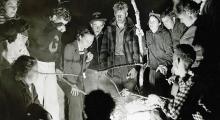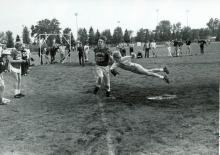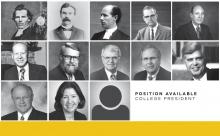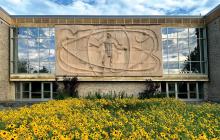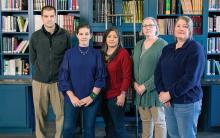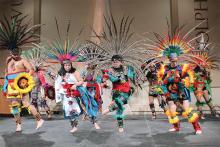In the spring of 1970, in the wake of the Cambodian incursion and the Kent State killings, the Gustavus Peace Education Program began, one of the first of its kind in the world. It was an imperative of then-Gustavus President Edgar Carlson ’30 (1944–1968), a Lutheran theologian and lifelong pacifist, as well as his Vietnam-era successor, Frank Barth (1969–1975).
It became actionable in 1974, with the hiring of a full-time director, Dr. Bernard LaFayette, Jr., co-founder of the Student Non-Violent Coordinating Committee (SNCC), and head of the Poor People’s March on Washington. A Freedom Rider who organized and marched with Dr. Martin Luther King Jr. from Selma to Montgomery, LaFayette had been arrested, beaten, and jailed multiple times during nonviolent protest. During his time at Gustavus, LaFayette brought 26 lecturers and activists to campus, many of them veterans of the civil rights movement.
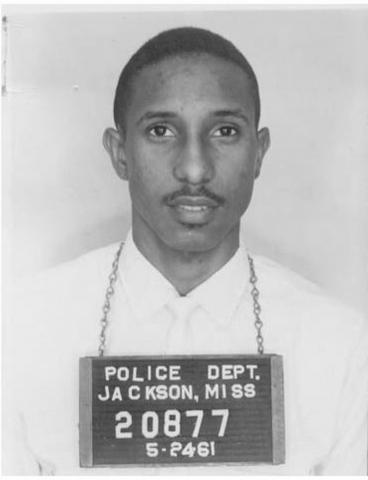
From there, peace and justice became, well, core values of a Gustavus higher education. In 1981, with funding from the Raymond ’37 and Florence Sponberg family, the MAYDAY! Peace Conference was established. In 1983, the Peace Education Program established the Wallenberg Lecture, to commemorate the service of Raoul Wallenberg in saving thousands of Jews during World War II. In 1986, the Program instituted an annual Rev. Dr. Martin Luther King, Jr. Memorial lecture. (LaFayette returned to Gustavus with his family to speak at the event in 2011.) The Program became an academic minor in 1994, and a major in 2018.
Today, Peace, Justice, and Conflict Studies (as it is now known) is an interdisciplinary major that draws from multiple departments while remaining true to its original intent: to give Gusties a strong sense of community as well as the knowledge and skills needed to build a peaceful world.


